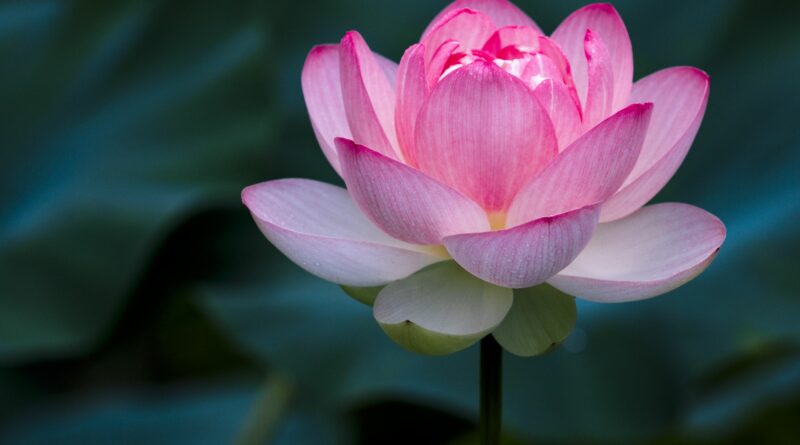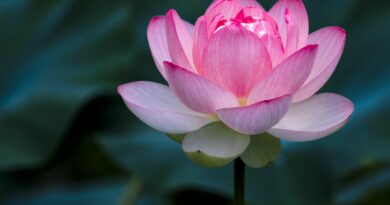91-100
MAIN CONTENT
91-100
91. Strange
After the opening ceremonies for the Phra Ajaan Mun Museum, Luang Pu traveled further to visit Ajaan Funn at Khaam Cave. In those days, large vehicles could go no further than the base of the hill where the cave was located, which meant that Luang Pu had to climb a long distance up the hill. This he found extremely tiring, having to stop and catch his breath many times. I felt keenly pained for my part in putting him to such difficulties. Finally, when we had reached the meeting hall at the top of the hill and Ajaan Funn had paid his respects, Ajaan Thate happened to arrive as well.
Seeing these three great elders coincidentally meeting and hearing them converse in a friendly way in such a peaceful and smiling atmosphere, my sense of inner pain totally disappeared and was replaced by a feeling of rapture.
Ajaan Funn expressed his admiration of Luang Pu, saying, “Your health is very strong. Even at your age, you’re still able to climb all the way up the hill.”
Luang Pu responded,
“I’m not really all that strong. I’ve looked the matter over and seen that I have no bad karma with regard to the body. When I can’t use the body any more, I’ll just drop it, that’s all.”
92. Stranger still
I’m sure you can imagine how thrilled the large surrounding crowd of lay people was to be present at this coincidental meeting of three great ajaans. This sort of opportunity isn’t easy to find. So two photographers from Surin starting taking as many pictures as they could.
When we were back on the bus for the trip home, the photographers saw that everyone was hungry for the pictures, so they announced that they would blow them up to 12” prints and sell them, with the proceeds going to help Jawm Phra Forest Monastery. I thought to myself that it wasn’t a very pretty thing to see a price put on an ajaan’s pictures with the purpose of selling them, but almost everyone on the bus placed an order.
When the photographers developed their film, they discovered that, of the more than twenty pictures they had gone to all that effort to take, all were totally blank, like a cloudless sky. That put an end to everyone’s hopes for the pictures and, as it turned out, that was the last meeting among those three great ajaans.
93. The truth as he saw it
When people asked Luang Pu if he had read any of the many accounts of Ajaan Mun’s life, he would answer, “A few.” The next question would be, “And what do you think of all the psychic powers and miraculous events they describe?” Luang Pu would answer, “Back in the days when I was living with Ajaan Mun, I never heard him mention anything about them.”
Normally, when Luang Pu would speak of Ajaan Mun, he’d speak only of his ascetic practices, saying,
“Among the later generations of monks, I’ve never seen a single one adhere to these practices as strictly as Ajaan Mun. He wore only robes made of rags that he had sewn and dyed himself. He never used finished robes received from anyone else. He stayed in forest dwellings his entire life. He ate only the food he had received on alms round, and only out of his alms bowl. Even when he was severely ill, he would sit up and hold his bowl in his lap for others to put alms in. He never took the special allowances that come from spending the Rains Retreat or receiving the kaṭhina. He never got involved in construction work, and never tried to persuade other people to do so.”
94. Answering questions with questions
Because I had been on familiar terms with Luang Pu for a long time, when I would ask him a question he would tend to answer by asking a question in return—his way of getting me to think out the answer on my own.
For example, when I asked, “The minds of arahants are clean and bright. Can they predict the next lottery number accurately?”
He answered, “Would arahants be interested in knowing stuff like that?”
When I asked, “Do arahants dream in their sleep like ordinary people?”
He answered, “Aren’t dreams an affair of the aggregate of fabrication?”
When I asked, “Have there ever been any run-of-the-mill people still thick with defilements who have nevertheless been able to teach other people to become arahants?”
He answered,
“Haven’t there been a lot of doctors who, even though they themselves are ill, have been able to cure other people of their illnesses?”
95. Luang Pu’s habits
Bodily: He was physically strong and nimble, well-proportioned in his features, clean-smelling, with few diseases. He liked to bathe with warm water only once a day.
Verbal: He had a deep voice, but spoke softly. He was a man of few words who spoke the truth, spoke directly, with no scheming to his speech. In other words, he never hinted, never cajoled, never spoke sarcastically, never gossiped, never begged, never asked anyone’s pardon, never talked about his dreams. He never told Jātaka stories or fabulous tales.
Mental: There was a truth to him—once he had set his mind on doing something, he would work at it until he succeeded. He was always kind and compassionate, quiet, calm, and enduring. He never flared up in anger or showed any signs of frustration or impatience. He was never upset about things that were lost, and was never heedless. Fully mindful, alert, he was cheerful at all times. He never seemed to suffer, and was always unshaken by events. No untoward states of mind overcame him.
He always taught us,
“Try to clearly understand events as events: that they arise, change, and then dissolve away. Don’t suffer or be sad because of them.”
96. Heavy pain, but not heavy with pain
Luang Pu was severely ill at the Chulalongkorn Hospital. On the night of the 17th day of his stay, he was very fatigued, to the point where the doctors had to give him an oxygen tube. Late that night, after midnight, a famous monk together with a large following came to pay respect. Seeing that this was a special occasion, I let them into Luang Pu’s room. Luang Pu lay on his right side with his eyes closed throughout the visit. When the monk and his following had bowed down to him, the monk leaned over him and spoke directly into his ear, “Luang Pu, do you still have feelings of pain?”
Luang Pu answered,
“Feeling and body still exist in line with their nature, but I don’t partake of that feeling at all.”
97. A safe shortcut
On January 20, 1973, just before Luang Pu was to leave Chulalongkorn Hospital, his students decided to donate a saṅghadāna to dedicate the merit to the past generations who had built the hospital and had since passed on.
When the ceremony was over, a number of doctors and nurses came to pay their respects to Luang Pu and to express their happiness that he had recovered. They commented in a friendly way, “Your health is still good and strong. Your face is bright, as if you hadn’t been sick at all. This is probably the fruit of your good powers of concentration. We don’t have much spare time to practice concentration. Are there any methods that are simple or quick?”
Luang Pu responded,
“Whenever you have time, use that time to practice. Training the mind, examining the mind, is the quickest, most direct method of all.”
98. Everything comes from action
Throughout his life, Luang Pu never accepted the idea of lucky hours or lucky days. Even when he was simply asked, “What would be a good day to ordain?” or “to disrobe?” or “Which days are lucky or unlucky?” he never went along with the idea. He’d usually say, “All days are good.” If people asked him to determine an auspicious time, he would have them go find out for themselves, or else he would say, “Any time that’s convenient is a good time.”
He would conclude by saying,
“Everything comes from our behavior. Good times, bad times, lucky times, unlucky times, merit, sin: All these things come from human behavior.”
99. Making no show
Luang Pu never did anything to make a show or call attention to himself. For example, if people wanted to take his picture, their timing would have to be right. For instance, if he had already put on his full set of robes to listen to the Pāṭimokkha or to ordain a monk or to participate in one sort of ceremony or another, then if you asked to take his picture at a moment like that, it would be easy. But if he was sitting informally and you asked him to get up and put on his robes to pose for a picture, you’d have a hard time getting him to comply.
Once, a lady from Bangkok brought a fine blanket for Luang Pu to use in the cold season. A few months later, in the middle of the hot season, she happened to come and pay her respects again. She asked him to get the blanket and pose with it so that she could take a picture, because she had forgotten to take a picture when she had donated it. Luang Pu refused to do so, saying gently, “There’s no real need for that.” Even when she asked him a second time, and a third, he kept saying, “There’s no real need.”
When she left I felt ill at ease, so I went to Luang Pu and asked him, “Do you realize how dissatisfied she was?”
Luang Pu smiled and said,
“I know. And the reason she was dissatisfied is because she has a dissatisfying heart.”
100. The end of rebirth
Once a senior meditation teacher came to discuss many high-level topics of Dhamma with Luang Pu and ended with a question: “Some of the senior meditation monks conduct themselves well and inspire great respect. Even other monks agree that they’re firmly established in the Buddha’s teachings. But then something happens. Either they disrobe, or their behavior starts going astray, running afoul of the Dhamma and Vinaya. So what level of Dhamma does one have to reach in order to cut transmigration for sure, so that there’s no more becoming and birth?”
Luang Pu said,
“Being strictly restrained in line with the Vinaya and observing the ascetic practices is an admirable form of conduct that’s extremely inspiring. But if you haven’t developed the mind to the level of heightened mind and heightened discernment, it can always regress, for it hasn’t yet reached the transcendent. Actually, arahants don’t need to know much. They simply have to develop their minds to be clear about the five aggregates and to penetrate dependent co-arising (paṭicca samuppāda). That’s when they can stop fabricating, stop searching, stop all motions of the mind. Right there is where everything ends. All that remains is pure, clean, bright—great emptiness, enormously empty.”



